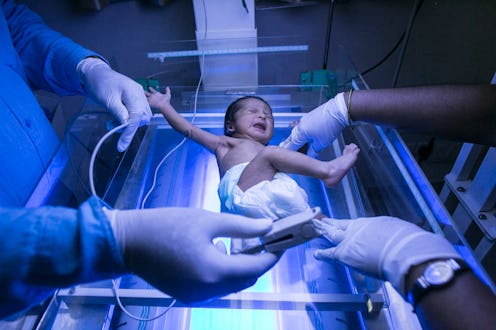And today in reproductive news: In vitro fertilization is on the rise. The Society for Assisted Reproductive Technology just released their latest annual report, and the apparently more babies are being born with the help of IVF than ever before. Surprised? Not surprised?
If you’re anything like me, the raw report will look mostly like gobbledygook to you for at least five minutes before it starts making sense, so allow me to sum up the findings: According to data gathered from the greater majority of IVF clinics in the U.S., doctors performed some 165,172 procedures including IVF in 2012; 61,740 babies were born as a result. That makes 2012 the year with the highest percentage of IVF babies ever. Wow.
What’s also sort of interesting is that the trend reflects the opposite of what’s going on with American birth rates overall. Somewhere in the neighborhood of 3.95 million babies were born in 2012 — which, though it seems like a lot, is below what’s known as the “replacement level,” or the number of babies that allows each generation to replace itself as others pass on. The general birth rate in the U.S. has been on the decline since 2007.
If you are interested in IVF, time is of the essence — the success rate for IVF is significantly higher for women under the age of 35. IVF treatments that used fresh embryos from non-donor eggs had a 40 percent rate of success for women under 35, while the rate was only 31 percent for women between 35 and 37. And once you get into your 40s, your chances drop — only 3.9 percent of 42-year-old women successfully got pregnant with IVF. This is perhaps unsurprising, as fertility does decrease as both men and women get older; women in particular produce fewer viable eggs the older they are, while men's sperm have a little more trouble swimming. Also, it is possible that those 42-year-old women are the very women who had unsuccessful attempts at IVF in their 30s.
It’s worth noting, though, that just because Americans are using IVF more doesn’t necessarily mean that we’re having trouble conceiving “the usual way.” That whole thing about fertility decreasing as we get older? That may be the reason for the upward IVF trend. American women are having kids a lot later than they used to: In 1980, the average age of a new mom was 22, whereas now, it’s 26. (Take that, Teen Mom! )
